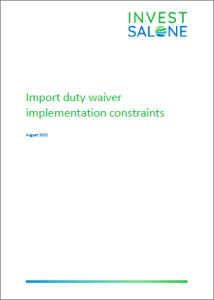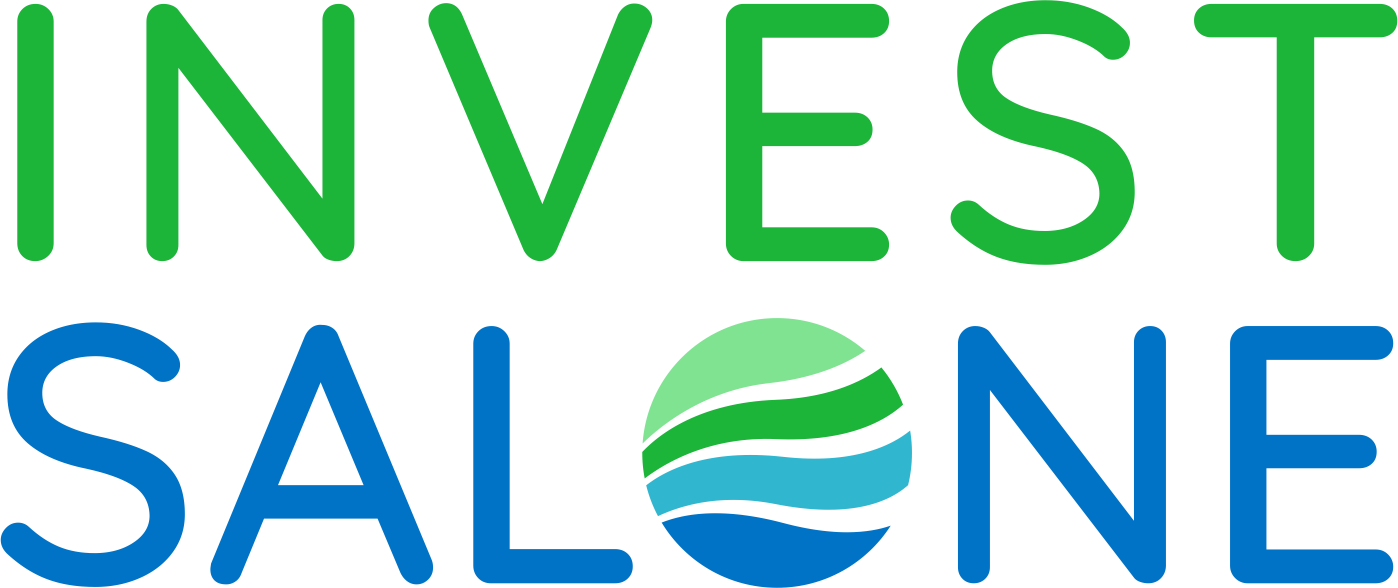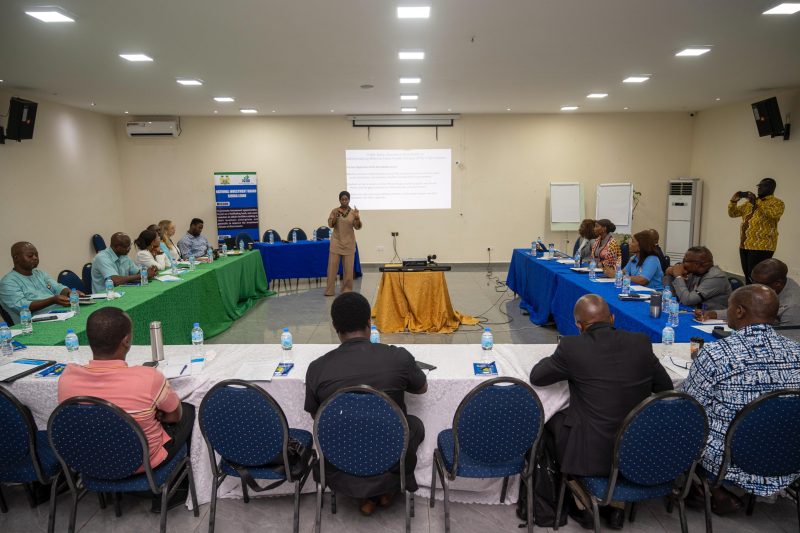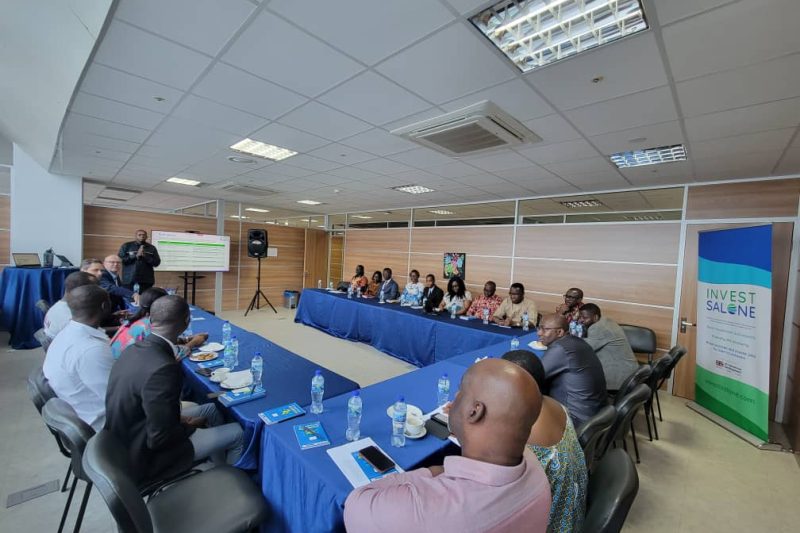Participants attending a recent public–private dialogue (PPD) on Sierra Leone’s duty waiver system have identified concrete recommendations and next steps to improve the process.
The PPD was attended by importers, the National Revenue Authority (NRA), the Pig and Poultry Association, major agribusinesses, as well as tax and private sector development consultants.
Facilitated by Invest Salone (ISL), a UK-government funded private sector development initiative, the PPD is part of a coordinated approach to improving agricultural competitiveness in Sierra Leone by identifying and tackling constraints.
Import duty waivers were introduced by the Government of Sierra Leone (GoSL) to drive investment in key productive sectors. For instance, under the system, agribusinesses are entitled to duty-free imports of agricultural inputs such as fertilisers, pesticides, insecticides, seeds and seedlings, hybrid tree seeds and day-old chicks. However, feedback from the private sector indicates that the application process is challenging, slow and creates delays that have in some cases increased rather than reduced their costs.
In a recent review of the legislation, administration and approval process of the duty waiver system, commissioned by Invest Salone, the following constraints were identified:
- Limited period to upload information onto ASYCUDA (a computerised customs management system) about the goods being imported
- Poor understanding of duty waiver requirements at ministries, departments and agencies (MDAs), leading to the rejection of significant numbers of applications
- Each ministry has only one profile in ASYCUDA, generally the Minister who does not delegate to deputy ministers or permanent secretaries which causes delays
- Poor internet connectivity in MDAs, which limits the use of ASYCUDA
- Mixing of goods that are subject to duty, and goods which qualify for duty waivers, in the same consignment which causes confusion
- Unprofessional behaviour by clearing agents who try to take advantage of the duty waiver process
- Continued interactions between government officials and consignees that create rent-seeking opportunities.
The study also recorded the experiences of businesses and costs caused by inefficiencies in the system, and concluded that although the Government has tried to improve the system with the introduction of an online clearing system, the process is still cumbersome. Delays are causing additional costs to private businesses in the form of of demurrage/penalty fees to the operator and shippers, for cargo that has overstayed its time at the terminal.
Recommendations from the PPD to improve the import duty waiver process included:
- Changes to the system such as:
- Integrating the Ministry of Finance with the NRA in the review of waiver applications to remove unnecessary layers
- Eliminating the system of in-house review committees within MDAs and organising a process design workshop to identify solutions to IT and infrastructural impediments
- Introducing a specific coding system for goods that are automatically eligible for duty and GST waiver, so that these can be assessed and cleared at customs, instead of going through several channels of MDA approval.
- Improvements to the existing system such as:
- Develop and introduce key performance indicators to streamline and expedite the clearing process, and to guide the number of days that duty waiver applications should take within MDAs
- Create multiple profiles in the ASYCUDA World system for MDAs and allow for approval decisions to be delegated to senior officers
- Conduct ongoing training within government institutions on how to review duty waiver applications.
Participants agreed to a plan of action to take the recommendations forward. This included consulting with the Ministry of Finance, shipping companies and MDAs; partnering with NRA on data sharing, a process design workshop and strategies to improve the understanding of duty waivers among importers; introducing modifications which will allow the application process to begin earlier and remove They also agreed to circulate clear information on the process, including a list of accredited brokers and all duty waiver costs and procedures.
Mrs. Jeneba Kpaka Bangura, Deputy Commissioner General of the NRA, welcomed the session but also underscored the importance of the participation of all stakeholders, noting that recommendations from such dialogues stand a better chance of implementation if all voices are heard and reflected.
David Bathalomew, consultant with Invest Salone, said: “Import duty waivers can play an important role in attracting private capital, creating jobs as well as boosting local entrepreneurship and productivity, but only if efficiently and fairly administered. Taking a coordinated public–private sector approach to improving their implementation means that we can arrive at solutions that work for most stakeholders. We have made a good start and Invest Salone looks forward to continuing to facilitate the process.”
Christian Chileshe, Managing Director of Frontline Chickens, spoke about the need for platforms for results, fine tuning ideas, finding solutions and regularly having conversations that move things beyond the session. He spoke about the importance of a coordinated approach and said that the outcome of the process will have a major impact on business.
Visit the Invest Salone website for more information about Invest Salone’s work in facilitating PPDs.
—————————————————
 To assess the waiver constraints, Invest Salone commissioned a study which reviewed the regulations that grant duty waiver exemptions to businesses. It carried out an assessment of the administrative processes along the clearing chain to pin-point specific areas where bottlenecks exist. Case studies were also conducted to catalogue the experiences of businesses and where possible estimate costs imposed as a result of an ineffective system.
To assess the waiver constraints, Invest Salone commissioned a study which reviewed the regulations that grant duty waiver exemptions to businesses. It carried out an assessment of the administrative processes along the clearing chain to pin-point specific areas where bottlenecks exist. Case studies were also conducted to catalogue the experiences of businesses and where possible estimate costs imposed as a result of an ineffective system.
Read the full report to find out more: Import duty waiver implementation constraints.






